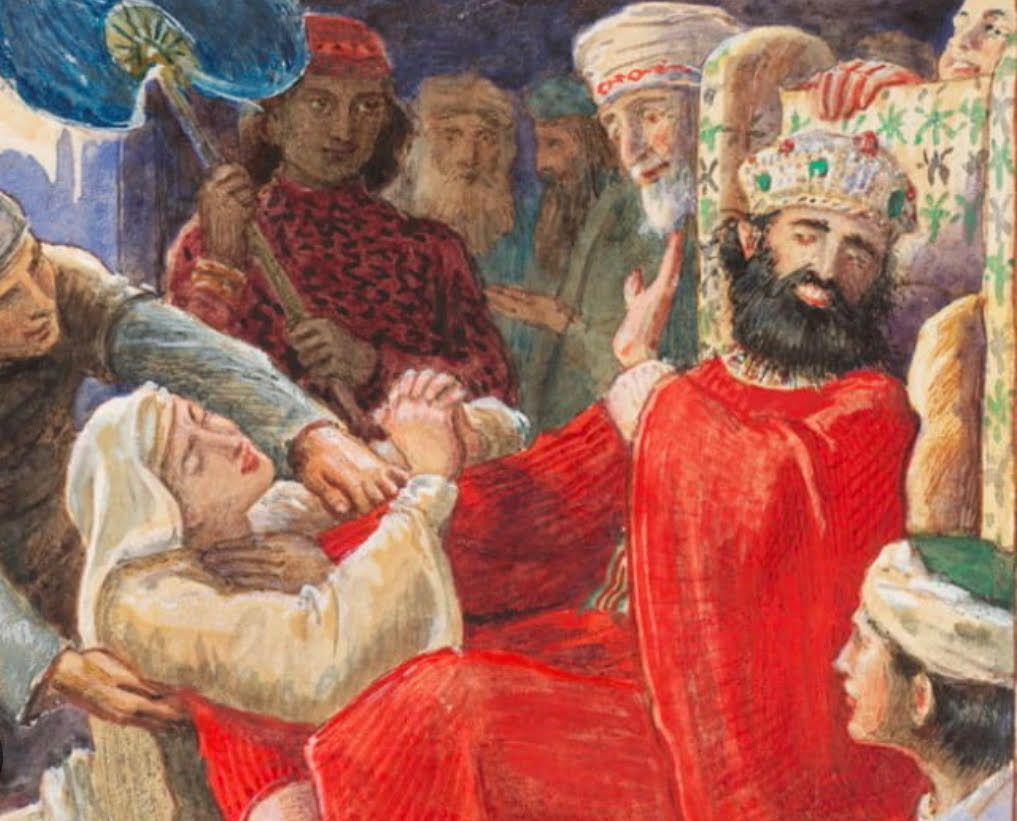29th Sunday in Ordinary Time
October 17, 2025
Gospel Reflection
Luke 18:1-8

Amalek (or the Amalekites) was the collective name of a restless and aggressive tribe of Semitic origin who periodically harassed the Israelites. They were a nation of depraved customs, much like the neighbouring Canaanites who occupied the land promised to Abraham —now divided between modern day Israel and Palestine. Underlying Israel’s battles with these people was the perennial struggle between good and evil. The People of God first encountered this group as they were being led by Moses through the Sinai peninsula towards their future homeland. The passage of Exodus read today describes how Joshua led the fight of resistance against the Amalekites, while Moses stood on a hill praying in the manner of those times—with arms outstretched and raised upwards to heaven. When eventually Moses tired and his arms sagged, the advantage went from Joshua’s men to the enemy. In this way it became apparent that the Israelites needed to rely on God for victory and not just on their own strength or tactics. Seating Moses down and holding up his arms, as Aaron and Hur did, insured the triumph of God’s chosen ones. The lesson we gain from this historic event is that winning out over sinful habits, temptations and whatever promotes evil in the world will always require not just effort and struggle but prayer and reliance on God’s grace. What is most moving about this passage is that it foreshadows Jesus’ own triumph on the Cross. With outstretched arms that could not sag, Our Lord had surrendered himself to a suffering that was at the same time a persisting prayer. This prayer insured the eventual victory - in human affairs—of good over evil, of God’s love over Satan’s hatred and perversions. In moments like the one described, both Moses and Joshua can be seen as figures of Christ.
The victory of good over evil is not always apparent, much less immediate. This serves to explain the parable Our Lord recounts – not without its touch of humour - of the poor widow who seeks justice from an unjust judge. Even though the judge has no concern for her, and delays taking any action, she continues with her regular visits. In the end she wears him down and he sees that she is satisfied. The fact that she did not lose hope resulted in her achieving a good outcome. What Our Lord wants us to know is that justice will, indeed, be done in due time, and men and women who do not lose faith will be the beneficiaries. At the same time he laments our weakness of faith by posing the question: will there be faith when the Son of Man returns? How well Jesus knows us, with our doubts and wavering, our impatience and limited vision of events and situations. For this very reason he is always prepared to give us his grace to overcome these weaknesses. Are we humble enough to recognize the need for this grace, in order to live our lives with a supernatural point of view, maintaining trust in God. Or will pride make us stubborn in relying only on our own subjective impressions or feelings. Such pride can result in great bitterness, especially when things go apparently wrong. A couple of recent feature films, starring well known comedians, portrayed professional men who were ambitious but always missing out, each feeling himself the victim of ridiculous contradictions. When they were granted the preternatural possibility of organizing their lives as they felt like, their use of this power eventually led to far worse frustrations and sadness. Finally, they realized their foolishness and self-centredness. Their new-found humility and sincerity turned them around, enabling them to see life in a more generous and objective way. What followed was a capacity to love others, to be loved and the happiness stemming from that. God’s love for us is real, it is creative and it is sanctifying. We need to allow ourselves to be formed by Him into the image of his Son, who met the Cross of contradiction, turned it into a prayer of trust and self-giving and so redeemed us and the world from evil.


